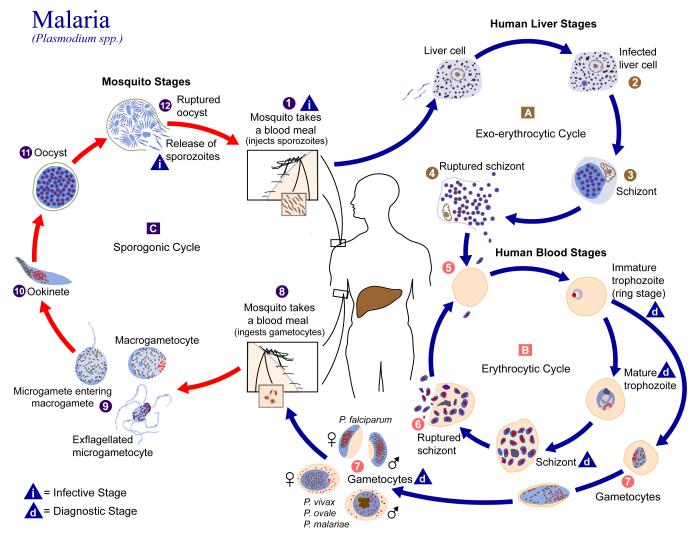The experience of a former adviser of mine was that some people who are not taking anti-malarial medication can still resist infection with Plasmodium falciparum, one of the parasites responsible for malaria. The parasite's life cycle includes stages inside the Anopheles sp. mosquito, and they are transmitted to human host via the female mosquito's saliva when she bites to have a blood meal:

(from Wikimedia)
There is currently a great deal of research going on to understand the biology of the parasite and how it typically evades the immune system so well. Proteins expressed by the parasite can undergo antigenic variation, meaning that different forms are expressed at different stages of the life cycle, and just as the immune system may be forming a response to one version, it is down-regulated and another takes its place. This is one reason why making a vaccine has proved to be so difficult, as unlike the influenza virus, for example, a single strain of Plasmodium can alter its immunogenic appearance and escape antigen-specific immune responses.
While malaria is responsible for a high degree of morbidity - sickness - it is not necessarily fatal except in some cases, frequently when the victims are young, already ill, or are otherwise immune-compromised, or when the infection moves to the central nervous system and the brain. I can't speak from personal experience (fortunately!), but I have been told by numerous friends that malaria is something you want to avoid at all costs. The sickness can last for weeks in some cases, and apparently is quite debilitating at its worst. Brain fever can be deadly, and in many third-world countries and among the poor the lack of good medical care can lead to complications. There is the additional factor that the family has to care for the sick, and if the ill person is a wage-earner that can mean the difference between food on the table and going hungry.
So, your friends are not going to die (probably) if they don't take their tablets, but there is no reason not to take them unless you have strong side-effects, and in that case the doctor may be able to find you another one. Other common-sense measures include always sleeping with a bed net, putting screens in windows, covering exposed skin during active mosquito hours, wearing repellant if available, and eliminating places where standing water can collect, stagnate, and provide a breeding area for mosquitoes.

